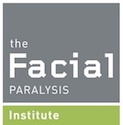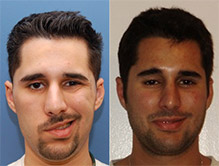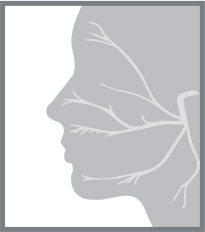The Social Impacts of Facial Paralysis
Facial paralysis and Bell’s Palsy both have a number of emotional and physical effects, such as anxiety over the sudden lack of control, and depression from feeling helpless.
One of the major impacts that facial paralysis has on a person’s life is their ability to interact with others socially. One recent article on SunSentinel.com ‘How Can You Express Emotion When You Have Facial Paralysis?‘ takes a look at a social worker in Los Angeles who cannot connect with the people she worked with because she suffered from Moebius syndrome – a congenital condition that causes facial paralysis.
So much of human interaction relies on facial expressions, and yet incredibly we often don’t realize just how much until it’s gone. In SunSentinel.com’s article, writer Benedict Carey explains that we naturally mimic the expressions of the people we’re talking to, in order to empathize with them and show our understanding. Those who can’t mimic those expressions come across as cold, and despite what they might say to ensure someone they understand, it’s difficult to accept that they do.
Many of those suffering with facial paralysis rely on body language to express the emotions that can’t be expressed through words and should be expressed through facial expressions. Nods and shakes of the head, the position of the arms and legs and gesticulating with the hands can do a lot. People who are talking to someone with facial paralysis need to be taught to look at body language to get their subtle social clues and aid interaction, but unfortunately, this is not common knowledge.
Because facial paralysis has such serious implications for a sufferer’s mental health as well as their physical health, it’s of paramount importance that we raise awareness of the conditions, and find ways for these individuals to cope and function well in social situations. Here at the Facial Paralysis Institute we are all about raising awareness, so if you can tweet a link to this article, or email it to your contacts and it’s read by just one person, you could make a world of difference to someone with the condition.
Request your consultation with Dr. Azizzadeh today
Call us at (310) 657-2203 to schedule an appointment.
Schedule a Consultation




